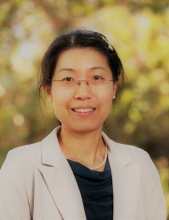CEE Seminar: Effects of Non-antibiotic Micropollutants on the Development and Propagation of Antibiotic Resistance in E. coli Populations

Assistant Professor
Department of Chemical and Environmental Engineering
UC Riverside
Abstract: Antimicrobial resistance is one major threat to public health around the world. The minimum selection concentration of antibiotics could be much lower than the minimum inhibitory concentration, imposing risks of antibiotic resistance development in environmentally relevant conditions. Antibiotics often coexist with non-antibiotic micropollutants in many environments during water and biosolids reuse applications. How the non-antibiotics at environmental levels would affect the selection of antibiotic resistance was largely unknown. This presentation will summarize our recent studies on the development of antibiotic resistance in E. coli populations exposed to antibiotics and non-antibiotic micropollutants. We demonstrated the synergistic effect of the pesticide and antibiotic co-exposure on stimulating the emergence of antibiotic resistance in the tested E. coli populations, whereas pharmaceuticals did not show such synergistic effects. Moreover, such a synergistic effect seems more specific to E. coli strains, including the pathogenic ones. Evolutionary trajectories revealed distinct genetic mutations conferring the much stronger phenotypic resistance commonly identified in several E. coli strains coexposed to pesticides and antibiotics. Those could be complementary biomarkers indicative of antibiotic resistance levels in the environment. The growth fitness of the evolved resistant mutants under different environmental conditions could be used to predict their abilities to survive and thrive in changing environments.
Bio: Yujie Men is an assistant professor at UC Riverside. She earned her Ph.D. degree in civil and environmental engineering at UC Berkeley, and B.S. and M.S. degrees of environmental engineering at Tsinghua University. Her expertise lies in environmental microbiology, microbial ecology and analytical chemistry. Her research interests focus on the interactions between microbes and the environment impacted by contaminants of emerging concerns (CECs), for example, biotransformation of CECs, particularly the per- and polyfluoroalkyl substances, as well as the impact of CECs on the functionalities of environmental microbes, including the development and transmission of antibiotic resistance.
Share
Upcoming Events
-
CEE Ph.D. Defense Announcement: Machine Learning and Remote Sensing for Environmental Modeling - From Large-Scale Streamflow Forecasting to Malaria Risk Mapping
-
CBE Special Seminar: Operando Electrochemical Methods at Dynamic Energy Materials Interfaces
-
CEE Ph.D. Defense Announcement: Release, Transport and Fate of Per- and Polyfluoroalkyl Substances (PFAS) in Urban Watersheds
-
MSE 298 Seminar: Mechano-Electrochemical Phenomena at Ceramic Electrolyte Interfaces
-
MSE 298 Seminar: Innovation In Materials Science - An Industrial R&D Perspective
